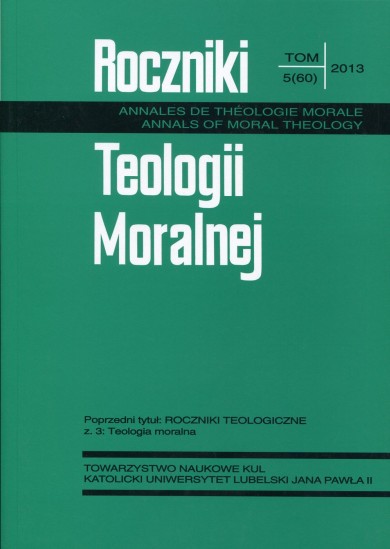Metodologiczne implikacje modeli eklezjologicznych w teologii moralnej społecznej
METHODOLOGICAL IMPLICATIONS OF ECCLESIOLOGICAL MODELS IN SOCIAL-MORAL THEOLOGY
Author(s): Jerzy GockoSubject(s): Christian Theology and Religion
Published by: Katolicki Uniwersytet Lubelski Jana Pawła II - Wydział Teologii
Keywords: Church; ecclesiological models; mission; moral theology; methodology; ecclesiology
Summary/Abstract: The article presents a characteristic of defined ecclesiological models and it subjects to analysis their possible influence on some methodological questions in social moral theology, especially on the issue of the relation between the Church and the world. The dynamic changes within the Catholic ecclesiology during the recent century have resulted, inter alia, in working out several models of the relation between the Church and the world, sometimes ones excluding each other. The most important ones include models conventionally defined as theories of incarnationism (indirect participation), polarization (correlation), secularization (exclusivism), integral participation, critical participation, inglobalization (global absorption) and some trends of eschatologism. Analysis of the most important aspects of these theories or trends allows a better comprehension of the great vitality and significance of the problem of relation to the world in the life of the whole Church, having also controversial elements and ones that may give rise to misunderstandings.
Journal: Roczniki Teologii Moralnej
- Issue Year: 2010
- Issue No: 2 (57)
- Page Range: 153-166
- Page Count: 14
- Language: Polish

